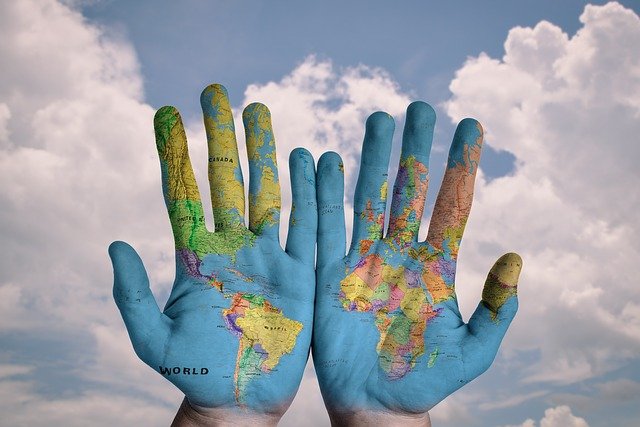.png)

영국의 캠브리지 지역의 유명 대학(Anglia Ruskin University)의 저명한 연구소, Global Sustainability Institute에서 나온 정식 보고서를 토대로 영국 가디언(The Gardian)지를 통하여 발표된 내용입니다.
기후변화 등을 바탕으로 지속 가능성 문제를 2011년이래 심도있게 연구하여, 실용적인 해결책을 개발하는데 노력을 기울이고 있습니다. 특히 사회적 시스템이 개인에 미치는 영향을 근간으로 소비와 변화, 글로벌 위험 및 복원력, 생태계 및 인간 복지, 지속 가능성의 4분야로 나누고 연구하고 있습니다.
이번 연구발표에서는, 식량공급, 기술 및 통신(웹), 세계금융 시스템 가능한 충격과 내공을 기준하여, 세계금융위기, 기후변화와 위기, 자연파괴, 전염병 등의 시나리오로 세계 문명이 붕괴될 때 살아남을 수 있는 나라 상위 리스트를 발표하였습니다.
[세계문명파괴시 살아남는 상위권 국가 FIVE]
1. 뉴질랜드
2. 아이슬란드
3. 아일랜드
4. 호주(태즈메니아)
5. 영국
위의 순위는 자체 인구를 부양케하는 식랼 지배 능력, 원치않는 대량 이주로퉈 국경보호, 전력망과 제조 유지 능력을 평가하여 결정되었는데, 상위권 국가 대부분이 강수 변화량이 적은 중위도 온대권의 인구밀도가 낮은 섬나라였습니다.
뉴질랜드는, 인구밀도가 낮고, 인구가 몰려있는 오클랜드를 중심으로 남반구 중위도에 위치하며, 전반적으로 해양성 기후로 온화한 편입니다. 지열(북섬 타우포 화산지대)과 수력 발전원(남섬 마나포우리)과 농지가 많으며, 지리적으로 고립되어 난민 유입도 적을 수 있으며, 강력한 환경 보호 정책으로 생물 다양성과 자연환경이 보호되어 상대적으로 기후 변화에 적게 영향을 받을 수 있습니다. 반면 대규모 지진이나 화산 활동에 대한 취약성, 풍부한 에너지원에도 불고하고 제조 능력의 제한, 수자원 활용에 대한 문제점도 언급되고 있습니다.
출처 : The Guardian
관련한글기사 : 코리아포스트 (인류 최후의 피난처 NZ?)
.png)
영국 가디언지 뉴스 원문
New Zealand, Iceland, the UK, Tasmania and Ireland are the places best suited to survive a global collapse of society, according to a study.
The researchers said human civilisation was “in a perilous state” due to the highly interconnected and energy-intensive society that had developed and the environmental damage this had caused.
A collapse could arise from shocks, such as a severe financial crisis, the impacts of the climate crisis, destruction of nature, an even worse pandemic than Covid-19 or a combination of these, the scientists said.
To assess which nations would be most resilient to such a collapse, countries were ranked according to their ability to grow food for their population, protect their borders from unwanted mass migration, and maintain an electrical grid and some manufacturing ability. Islands in temperate regions and mostly with low population densities came out on top.
The researchers said their study highlighted the factors that nations must improve to increase resilience. They said that a globalised society that prized economic efficiency damaged resilience, and that spare capacity needed to exist in food and other vital sectors.
Billionaires have been reported to be buying land for bunkers in New Zealand in preparation for an apocalypse. “We weren’t surprised New Zealand was on our list,” said Prof Aled Jones, at the Global Sustainability Institute, at Anglia Ruskin University, in the UK.
Jones added: “We chose that you had to be able to protect borders and places had to be temperate. So with hindsight it’s quite obvious that large islands with complex societies on them already [make up the list].
“We were quite surprised the UK came out strongly. It is densely populated, has traditionally outsourced manufacturing, hasn’t been the quickest to develop renewable technology, and only produces 50% of its own food at the moment. But it has the potential to withstand shocks.”
The study, published in the journal Sustainability, said: “The globe-spanning, energy-intensive industrial civilisation that characterises the modern era represents an anomalous situation when it is considered against the majority of human history.”
The study also said, that due to environmental destruction, limited resources, and population growth: “The [academic] literature paints a picture of human civilisation that is in a perilous state, with large and growing risks developing in multiple spheres of the human endeavour.”
Places that did not suffer “the most egregious effects of societal collapses and are therefore able to maintain significant populations” have been described as “collapse lifeboats”, the study said.
New Zealand was found to have the greatest potential to survive relatively unscathed due to its geothermal and hydroelectric energy, abundant agricultural land and low human population density.
Jones said major global food losses, a financial crisis and a pandemic had all happened in recent years, and “we’ve been lucky that things haven’t all happened at the same time – there’s no real reason why they can’t all happen in the same year”.
He added: “As you start to see these events happening, I get more worried but I also hope we can learn more quickly than we have in the past that resilience is important. With everyone talking about ‘building back better’ from the pandemic, if we don’t lose that momentum I might be more optimistic than I have been in the past.”
He said the coronavirus pandemic had shown that governments could act quickly when needed. “It’s interesting how quickly we can close borders, and how quickly governments can make decisions to change things.”
But he added: “This drive for just-in-time, ever-more efficient, economies isn’t the thing you want to do for resilience. We need to build in some slack in the system, so that if there is a shock then you have the ability to respond because you’ve got spare capacity.
“We need to start thinking about resilience much more in global planning. But obviously, the ideal thing is that a quick collapse doesn’t happen.”
(29).png)
🍀신속한 상담을 위해서는 애플유학 카톡 아이디 appleY 로 연락주세요~
.jpg)
 상담신청
상담신청 세미나
세미나 질문하기
질문하기